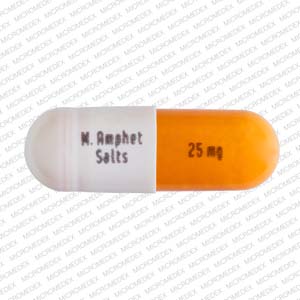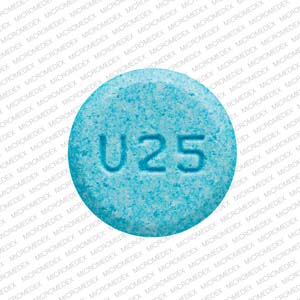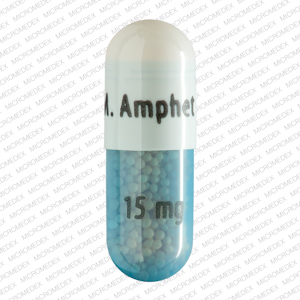
Case reports document severe congenital bone deformity and other birth defects animal studies have reported long-term neurochemical and behavioral alterations in pups exposed to amphetamines in utero. There are no well-controlled studies investigating its use in humans during pregnancy. Should not be used during pregnancy unless the potential benefit justifies the risk.Rare cases of priapism (painful erections more than 6 hours in duration) have been reported.Extreme fatigue and depression have been reported when amphetamine-dextroamphetamine has been stopped suddenly, particularly in those who have been taking more than the recommended dose.May interact with a number of other drugs including other antidepressants, medications used to treat heart disease, blood thinners, decongestants, tramadol, and proton pump inhibitors.May also not be suitable for people with thyroid disease, glaucoma, psychiatric disease, a history of drug abuse, a tic disorder, seizures, liver or kidney disease, or circulation problems. May not be suitable for people with certain heart conditions, as the risk of sudden death is increased even with usual dosages.May increase the risk of seizures and peripheral circulatory problems and cause visual problems.Doctors should monitor height and weight and consider treatment interruption if growth suppression is suspected. Reports indicate some temporary slowing of growth may occur when regular amphetamine-dextroamphetamine is given to children aged 7 through 10 years.
D amphetamine salt combo 20 full#
May impair judgment or reaction skills exercise caution before driving or operating machinery until the full effects of amphetamine-dextroamphetamine are known.Interaction or overdosage may cause serotonin syndrome (symptoms include mental status changes ), fast heart rate, dizziness, flushing, muscle tremor, or rigidity and stomach symptoms (including nausea, vomiting, and diarrhea).May exacerbate pre-existing psychiatric disorders such as bipolar disorder, psychotic disorder, or mania and increase anxiety, tension, and agitation.Overdosage has resulted in psychosis which is indistinguishable from schizophrenia. Misuse may cause sudden death or cardiovascular events. May be sought after by drug abusers or people with addiction disorders. May cause a withdrawal syndrome on abrupt discontinuation (symptoms include extreme fatigue, depression, sleep disturbances). May cause dependence and tolerance and be subject to abuse.May affect blood circulation in the fingers or toes causing ulceration or tissue breakdown.May also cause heart palpitations, constipation and other GI disturbances, weight loss, changes in libido, alopecia (hair loss), elevated blood pressure and muscle twitching, stiffness, or tightness.Insomnia, decreased appetite, blurred vision, and abdominal pain.If you are between the ages of 18 and 60, take no other medication or have no other medical conditions, side effects you are more likely to experience include:



When given for ADHD, amphetamine-dextroamphetamine should be used in conjunction with other treatment options, such as psychotherapy, education about the disorder, and social integration advice.Also used to treat narcolepsy (spontaneous, uncontrollable, falling asleep).Used in the treatment of Attention Deficit Hyperactivity Disorder (ADHD) to increase attention and decrease hyperactivity and impulsiveness.Amphetamine-dextroamphetamine belongs to the class of medicines known as central nervous system stimulants.These act in the brain to increase the release of neurotransmitters (chemicals that help send messages around the brain).



 0 kommentar(er)
0 kommentar(er)
